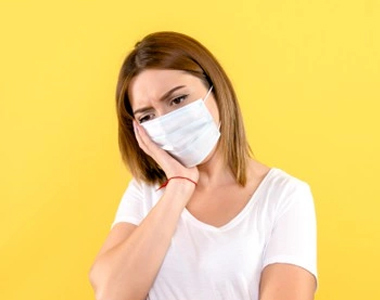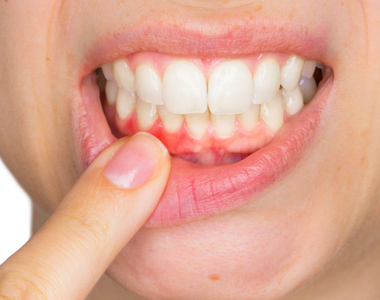
Is Baking Soda safe to brush with?
Category : Gentalcare
Written by- https://orawellness.com/
Is baking soda safe to brush with?
“Will I damage my teeth if I brush with baking soda?”
Some experts claim that regularly brushing with baking soda can cause wear on tooth enamel and gum tissue.
Is baking soda really to blame?
Our teeth like to be polished and our gums like to be massaged.
If we remember just this one thing while brushing, we’ll be much more inclined to treat our teeth more carefully:
Our teeth are living gems.
Yep, our tooth structure is like a crystal. But, unlike rubies and diamonds, these ‘tooth crystals’ are alive
The bottom line is that most of us brush our teeth unconsciously. We call it ‘zombie brushing’.
Let’s face it, if we brush our teeth like we’re scrubbing a grout line in our bathroom, then yes, using baking soda to brush our teeth could potentially cause some real problems.
One way to tell whether you brush unconsciously is to note how you hold your toothbrush.
If you hold your toothbrush with a closed fist, you’re most likely scrubbing a grout line.
So, before we dive any further into the details of whether or not it’s safe to regularly brush with baking soda, let’s firmly state that how we brush our teeth is more important than what we brush with.
Let’s explore the risks and benefits of using baking soda to brush our teeth.
Here are the potential downsides to using baking soda as a tooth powder.
Risk 1: Abrasivity
Is baking soda too abrasive?
To answer this, let’s compare baking soda to some abrasives that are commonly included in oral hygiene products.
In the world of oral hygiene products, there’s a scale called ‘Relative Dentin Abrasivity’ (or RDA). It ranks product abrasive from zero (not abrasive) to over 200 (super abrasive).
Baking soda is only a 7 on the RDA scale. So, at first glance, it seems that when used consciously, baking soda isn’t too abrasive.
Pay attention if you have receding gums
As you know, the enamel is the outer portion of each tooth. Under the enamel is the dentin, then the tooth pulp.
However, if we have receding gums, it’s very possible that the portion of the tooth around our gum line may no longer be enamel. As the gum recession progresses, the softer tooth tissue called ‘cementum’ may become exposed around the gum line.
This explains why it’s more common for adults to get cavities along the gum line than on the chewing surfaces of their teeth. The receding gums expose the cementum, which is softer than the enamel that covers the crown of the tooth (therefore, it’s more prone to decay as well as structural damage from brushing too hard and using products that are too abrasive).
However, overall, when used consciously, baking soda is ok to use in a toothpaste or powder.
Risk 2: What about the aluminum in baking soda?
This is a common cultural myth. Baking soda does not contain aluminum.
Some product manufacturers have caused confusion by listing ‘aluminum-free baking soda’ on their ingredient list, but baking soda doesn’t have any aluminum in it.
Risk 3: Daily use of baking soda by itself may be too far…
There are experts in the field who suggest that brushing with baking soda alone is too ‘rough’ and compromises the healthy biofilm that our teeth need in order to be healthy.
Now that we’ve unpacked some of the risks of brushing with baking soda, let’s explore some of the benefits.
Benefit 1: Supports a healthier oral pH
Our mouth pH plays a big role in determining which populations of bacteria flourish there. It’s generally recognized that the lower (more acidic) the pH in the mouth, the greater the risk of tooth decay. (Enamel demineralization occurs at pH 5.5 and lower.)
You see, the bacteria that flourish at a pH of 5.5 will find a pH of 6.5 or 7.0 downright inhospitable. To successfully manage our oral microbiome, our job is to help maintain a mouth pH that supports the probiotic bacteria populations that help us to live healthy, vital lives.
Baking soda’s pH of 8.3 helps support a more alkaline oral pH. It gently nudges the environment in our mouths to a healthier place.
For more information on pH’s role in our oral health, check out our article, “Tracking your saliva pH“. This article contains a free OraWellness saliva tracking log that you can download to help you along your path.
Benefit 2: Baking soda lowers thug bug count
Plenty of research shows that baking soda can really help lower the populations of thug bugs in the mouth, so it’s an effective support tool to reduce periodontal pathogens.
This makes sense if you stop and think about it.
Baking soda is sodium bicarbonate, so it’s a salt. All salts are naturally antimicrobial.
Do the benefits outweigh the risks?
Given the above information, we believe that baking soda can offer support in helping us navigate to optimal oral health provided that we brush consciously and avoid ‘zombie brushing’ our teeth.
Baking soda definitely provides plenty of ‘grit’ to help remove plaque. However, to avoid causing more harm than good, we must be vigilant and mindful while brushing with baking soda.
You see, most of the grit from baking soda (and toothpaste, for that matter) is diluted with saliva and ‘used up’ within the first 20 seconds of brushing.
So for example, if out of habit you always start on the upper left side when brushing, the teeth and surrounding gum tissue in that area are going to get more than their fair share of abrasive action, and they may weaken over time.
How to avoid overworking one spot in your mouth?
To help mitigate the risk of this habitual ‘starting to brush in the same spot every time’.
Here’s the simple strategy…
Presuming you brush twice a day, start on one side of your mouth in the morning and the other side at night. An easy way to remember this is ‘at night, start on the right’.
So, each morning, start brushing on the left side of your mouth and each night, on the right.
In this way, we reduce the risk of over brushing one area and we spread out the fresh toothpaste/tooth powder to various areas around the mouth.
How to use baking soda in a homemade tooth powder?
We are so grateful for the resurgence of the DIY (do-it-yourself) movement. From making deodorant to raising backyard chickens, we’re all waking up to the benefits of doing or making things ourselves.
If you want to try your hand at making a tooth powder, definitely consider using baking soda as one of the ingredients.
You may also consider using xylitol to boost remineralization. Just make sure that the xylitol is sourced from birch and not corn, so you avoid GMO exposure.

 Review Us
Review Us  Review Us
Review Us 
